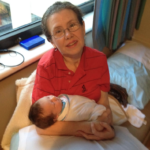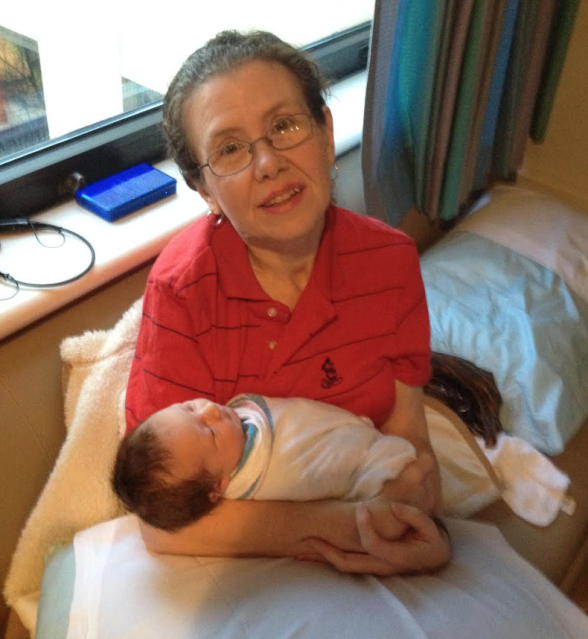This week, we are publishing an article written by one of our USA members, Davida Sassler, who shares her experiences of Lewy Body Dementia and the imapct it has had on her own life and family. It is a courageous blog, and highlights the myths and stigma so many of us still experience when diangsed, especially from our own family and friends. Not only does the health care sector need better education, the community needs it too, and much more than awareness raising through the use of the discourse of tragedy and suffering, as that keeps too many of the myths alive.
People with dementia can, and are living positively with it. This is happening all aropund the world, and we are individually and collectively trying to get rid of the myths and fear of dementia. All we ask is that you see the person, not the dementia, and help us to live in spite of dementia by supporting us to maintain independent lives with disability and other support.
In fact, we simply ask our families and friends to open their hearts, and offer us the same love and support they would if we had been diagnosed with cancer instead of dementia.
Grandchildren and Dementia
By Davida Sassler © 2017
 When I was diagnosed first with Alzheimer’s last December and later updated with Lewy Body Dementia diagnosis, I never imagined at 51 years old in the early stage that anyone would consider me a threat to my two grandchildren – Isaac 3 years old and Hannah 2 years old. Yes, I hallucinate and can be forgetful especially if not on my medication, but I never considered myself a threat.
When I was diagnosed first with Alzheimer’s last December and later updated with Lewy Body Dementia diagnosis, I never imagined at 51 years old in the early stage that anyone would consider me a threat to my two grandchildren – Isaac 3 years old and Hannah 2 years old. Yes, I hallucinate and can be forgetful especially if not on my medication, but I never considered myself a threat.
Over the last year my son and his wife had separated due to her wishing to be with another man, it has been difficult on my son and grandchildren. Currently, my former daughter in law has decided that she wants sole custody of the children and has literally thrown me under the bus on her pursuit of taking the children away from their father. I along with my partially blind ex-husband are claimed to be dangerous and unfit to be around the grandchildren.
My son has spoken with his lawyer and our best recourse of action is to submit a letter from our doctors stating otherwise for the judge. I have spoken with my neurologist’s office and he has no problem supporting me. He feels that there is no reason for the children to be withheld from me.
This recent issue has made me consider growing up as a great grandchild, grandchild and as an adult a daughter of someone with Dementia. My great grandfather Ivo had Parkinson’s disease and later developed Dementia. As a child, I did not understand why my great grandfather would go from normal to completely confused or even angry at times which was not the man that I grew up around. He was never threatening to me or anyone else, he just seemed confused and frustrated.
Later as an adult, I had to deal with my grandmother Katheran who was Ivo’s daughter who had Alzheimer’s. She did her best to hide it from everyone. Most times, she didn’t speak just nod yes and smile. Eventually, she was misplacing everything and was wondering the neighborhood at 3 AM in the morning knocking on the neighbor’s doors. This convinced us that she was in serious trouble. At no time, did I ever prevent her from seeing my children. It took some explaining to them even in their teen years as to why she was acting so strangely.
Eventually, my father started having issues with confusion and hallucinations. At first his doctors claimed Alzheimer’s but he absolutely would not accept their diagnosis. He called them quacks and refused all medication. He knew his symptoms did not match what he was experiencing and blamed it on his dyslexia as he aged. As he continued, things only became worse. He was angry on a regular basis and soon forgot words. At moderate to late stage, my stepmom was able to finally get him on medication and to other doctors who diagnosed him with Lewy Body Dementia.
My father had always been a very strong man with an outspoken demeanor. It was difficult on my children to see him become childlike and unable to hold a simple conversation. At this point, both my kids were adults and my grandson Isaac had been born. Never did any of us consider keeping Isaac away from my dad because we knew on some level that he understood this was his great grandchild.
Dementia is a lonely place. I could see it in my family member’s faces and now I am experiencing it firsthand. I would never wish this on my worst enemy. People want to shun folks with dementia. I saw how they reacted when we would take my dad out to dinner at a restaurant. Everyone seemed uncomfortable around him and his simple ways. I guess it is easier to send someone away and out of sight than to acknowledge that they are suffering dementia.
Remembering how my family members were treated, made it difficult for me to admit to anyone outside of my family that I had Dementia. I did not want to be treated different. I still feel like me most days. The days that I am confused treating me differently only makes me angrier. I was literally fuming over the litigation papers trying to bar me from my grandchildren. No, I don’t know how long that I can remain in the early stage but I intend to fight to remain here as long as possible. During this time, I want my life to be as normal as I can be. I want to be around other people, friends, and family but do not want to be treated as a child or like I am made of glass.
A 100 years ago, crazy people were left in attics or sent to asylums to be hidden away because everyone was so ashamed to be around them. Now they openly shop at Walmart and pose as Walmartians. I even recently saw a video taken of a young woman with two different shoes (a flat and a high heel) dragging a raw roasting chicken along on a leash to the bus. Crazy is now celebrated and paraded about fully in society.
Unfortunately, society does not have the same tolerance for Dementia patients. If you are early stage, most folks don’t believe that you are sick and if you are far enough along to doubt the dementia, they prefer that you aren’t around them. They are no better than public lepers. All we can do is fight to dispel the myths of dementia. Educate the ones who refuse to see this as a disease like any other including Cancer. We are no different just a different type of disease except unlike Cancer, we have no current hope of a cure. It is a disease that was considered only for the old and infirmed not people like me who are still relatively young at 51 years old.
We must speak out and we must fight for our rights as long as we can.
